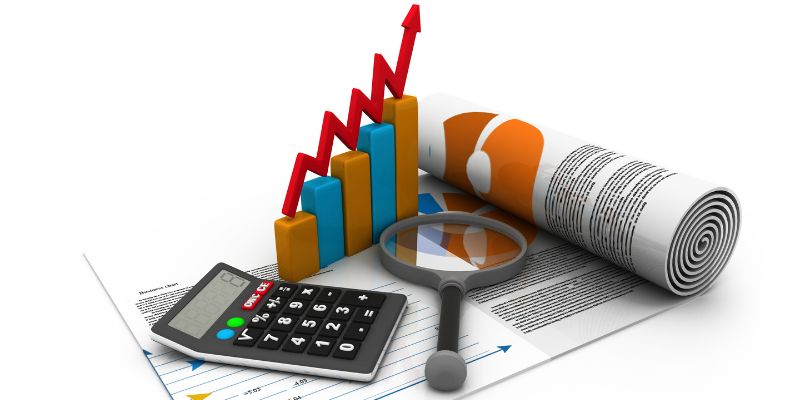What Determines Consumer Sentiment and Business Confidence: An Overview
Nov 04, 2024 By Darnell Malan
Understanding the economy's pulse requires understanding consumer sentiment and business confidence. They expose people's and companies' attitudes on investing, saving, and spending their degree of optimism or caution. Usually speaking, a high consumer mood indicates that individuals are prepared to spend, which stimulates economic development. Conversely, confident companies spend more on hiring and growth. What, nevertheless, shapes these emotions?
Many factors influence consumers ' and companies ' perspectives of the future, from income levels and employment rates to worldwide events and political stability. Changes in these markers impact daily life and guide decisions on everything from big purchases to staffing additions. This guide explores the main causes of consumer sentiment and business confidence. Understanding these ideas will help us to make wise financial decisions in an uncertain environment and better forecast trends.

Economic Factors That Influence Consumer Sentiment
These are the main economic elements influencing consumer attitude, determining how one views saving and expenditure.
Income Levels and Employment Rates
People's income level highly influences consumer sentiments. When employment rates are high, more people have steady work and consistent incomes. Greater incomes make people feel confident about their financial future. Their confidence motivates them to spend more on goods and services, promoting economic development. Rising unemployment, on the other hand, can cause anxiety. People anxious about losing their employment or having wage cuts usually save rather than spend. It can weaken consumer attitudes and slow down general economic growth.
Inflation and Cost of Living
Another main determinant of consumer confidence is inflation. Quick price increases allow people to afford less with the same income level. It can cause customers to be unsure about the economy's state, lowering their general attitude. Higher grocery shop or gasoline pump prices, for instance, can make it more difficult for individuals to save or spend on non-needed goods. High inflation often causes individuals to spend just on fundamental needs, which might hurt companies. This impact is particularly acute when inflation increases faster than salaries, reducing buying power.
Interest Rates and Borrowing Costs
Both consumer and business confidence depend much on interest rates. When interest rates are low, people find borrowing for homes, automobiles, and education simpler. Low rates help borrowing to be more reasonable, so increasing consumer expenditure. Low interest rates also help businesses by lowering financing costs for equipment acquisitions or expansion. Interest rates climb, though, and borrowing becomes more expensive. Reduced consumer and company spending resulting from this could slow down the economy.

External Factors Impacting Business Confidence
The main external factors affecting business confidence are listed below. These factors shape how businesses handle stability, investment, and expansion.
Government Policies and Regulations
Government initiatives can influence business confidence. Tax savings for firms, for instance, can inspire corporations to increase staff or make greater operational investments. Companies get more hopeful when governments cut rules since they free them from more limitations. On the other hand, raising taxes or rules may cause business owners to become cautious. Strong controls in policies could raise running expenses. It helps to lower the possibility of businesses investing fresh money.
Political Stability and Global Relations
Retaining business trust depends on political stability. Businesses are likelier to feel safe when a nation boasts consistent policies and leadership. Stable governments let companies develop long-term investment plans more readily. However, political unrest might have the reverse impact. For example, changes in commercial agreements or foreign ties could bring uncertainty. Companies worrying about unexpected trade routes, tariffs, or market access changes could be reluctant to invest.
Technological Advancements and Industry Disruptions
Modern technologies can cause notable changes in corporate confidence. Technological developments often allow companies to expand or enter previously unexplored sectors. Adopting new technologies helps businesses raise their confidence by lowering expenses or raising production. Industry upheavals can, however, also cause uncertainty among some businesses. New technologies might induce concern among impacted companies if they challenge an industry's accepted method of operation. Digital streaming, for example, disrupted the established cable and DVD businesses.
Key Indicators of Business Confidence
These are the main elements of corporate confidence, which capture businesses' hope and future investment and expansion strategies.
- Business Investments and Expansion Plans: One important measure of confidence is the extent to of investment companies are ready to commit. Optimistic businesses invest in new technologies, goods, or facilities. Future demand is expected by expansion plans to be higher for companies. Businesses may delay investments, nevertheless, depending on poor confidence. It usually occurs during economic uncertainty when companies are unsure whether future demand will be enough.
- Stock Market Performance: The performance of the stock market usually reflects business and investor confidence. Rising stock prices show that investors believe businesses have profitability. A robust stock market indicates that companies are performing well, which raises consumer mood. On the other hand, declining stock markets could suggest problems for companies. Declining stock values may indicate future economic hardships, lowering consumer and business confidence.
- Business Profits and Earnings Reports: Companies' profit margins directly affect corporate confidence. Strong revenues make businesses more ready to innovate, grow, or recruit. Excellent performance reports help increase investor and shareholder confidence. But when profits are poor, businesses might become more wary. Reduced profits might force companies to curtail development or cut expenses, affecting their economic capacity. Frequent income statements give information about company opinions on both present and future performance.
Conclusion:
A complicated combination of psychological, societal, and economic elements shapes consumer sentiments and business confidence. Government policies, inflation, income, and other factors strongly influence these variables. Consumers and companies also view the future depending on political stability, technical development, and industry changes. These elements direct financial decisions, influencing regular purchases and big corporate investments. Knowing these factors enables us to make wise financial decisions and project future economic trends. Monitoring changes in consumer attitude and company confidence helps people and businesses to negotiate economic uncertainty better and seize possibilities.
-
 Know-how Nov 01, 2023
Know-how Nov 01, 2023Constructing a Budget for Your Household Easy Step-By-Step Budgeting
Keeping a house running is no simple task, and it becomes much more challenging when money is tight. That's why making a family budget could be a good idea. Spending a few hours upfront on a budget and savings plan might pay out in spades later on, both financially and emotionally
-
 Know-how Nov 22, 2023
Know-how Nov 22, 2023Things to Learn About Annual Interest Returns - a Simple Guide
Unlock the secrets of Annual Interest Returns with our simple guide! Learn how to make your money work for you and navigate the world of finance confidently.
-
 Mortgages Nov 09, 2023
Mortgages Nov 09, 2023Ways To Save Money When Filling Mortgage Taxes
The tax deduction for mortgage interest is one of the aspects of homeownership that is likely to be misunderstood the most. It has reached the level of a near-myth. As a result, many people considering buying a property are convinced of its advantages even before they do the necessary calculations to establish whether they are eligible
-
 Mortgages Dec 11, 2023
Mortgages Dec 11, 2023Advantage Education Loan
Fixed-rate Advantage Education Loans are available via the Kentucky Higher Education Student Loan Corp., a nonprofit organization.
